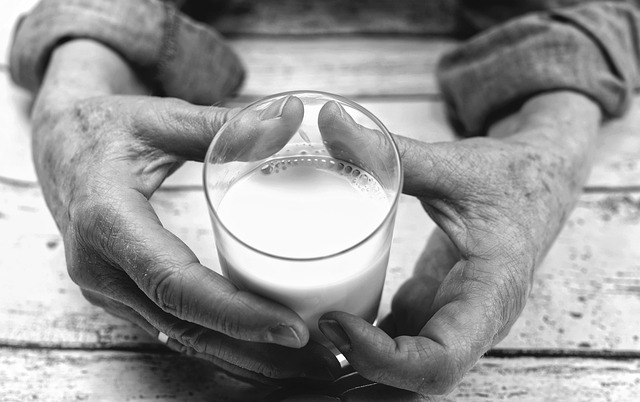Alcohol consumption is a common part of social gatherings, celebrations, and relaxation for many people worldwide. However, its effects on weight and overall health are often misunderstood or overlooked. While moderate drinking may not drastically impact weight for everyone, excessive or frequent alcohol intake can lead to unwanted weight gain and other metabolic issues. Understanding how alcohol influences your body can help you make informed decisions about your drinking habits and their potential consequences on your weight.
How Alcohol Affects Caloric Intake
One of the most direct ways alcohol impacts weight is through its calorie content. Alcoholic beverages are high in “empty calories,” meaning they provide energy but little to no nutritional value. For example:
- Beer : A standard 12-ounce serving contains around 150–200 calories, depending on the type.
- Wine : A 5-ounce glass of red or white wine typically has about 120–150 calories.
- Spirits (hard liquor) : A 1.5-ounce shot of distilled spirits like vodka, whiskey, or rum contains approximately 100 calories before mixers are added.
When mixed with sugary sodas, juices, or syrups, cocktails can easily exceed 300–400 calories per drink. These additional calories can quickly add up, especially during nights out or binge-drinking episodes. Over time, consuming more calories than your body burns leads to weight gain.
Alcohol’s Effect on Metabolism
Alcohol metabolism plays a significant role in how it affects weight. When you consume alcohol, your body prioritizes breaking it down over other processes, including fat burning. This is because alcohol is treated as a toxin that must be eliminated promptly.
- Reduced Fat Burning : While your liver works to metabolize alcohol, fat oxidation slows down or stops altogether. As a result, any excess calories from food consumed alongside alcohol are more likely to be stored as fat.
- Increased Appetite : Alcohol lowers inhibitions and stimulates appetite, leading to overeating or indulging in unhealthy snacks. Late-night cravings after drinking (“drunk munchies”) are a well-known phenomenon that contributes to calorie surplus.
These combined effects create an environment where weight gain becomes more likely.
Impact on Hormones and Hunger Signals
Alcohol also disrupts hormonal balance, which can further influence weight management. Key hormones affected by alcohol include:
- Leptin : Known as the “satiety hormone,” leptin signals fullness and regulates energy expenditure. Studies suggest that alcohol suppresses leptin levels, making it harder to feel satisfied and increasing the likelihood of overeating.
- Cortisol : Chronic alcohol consumption raises cortisol, the stress hormone, which promotes fat storage—especially around the abdomen (visceral fat).
Additionally, alcohol impairs decision-making skills, making it easier to choose high-calorie, nutrient-poor foods when intoxicated. This disruption in normal hunger and satiety cues can sabotage even the best-laid dietary plans.
Dehydration and Its Indirect Effects
While dehydration itself doesn’t directly cause weight gain, it can indirectly contribute to poor eating habits. Alcohol is a diuretic, meaning it increases urine production and depletes fluids from the body. Dehydration can mimic feelings of hunger, prompting unnecessary snacking. Moreover, inadequate hydration slows digestion and metabolism, hindering the body’s ability to efficiently process food and burn calories.
Binge Drinking vs. Moderate Drinking
The frequency and quantity of alcohol consumption play a critical role in determining its impact on weight:
- Moderate Drinking : Defined as up to one drink per day for women and two drinks per day for men, moderate drinking is less likely to cause significant weight gain if balanced within an overall healthy lifestyle.
- Binge Drinking : Consuming large amounts of alcohol in a short period (e.g., four or more drinks for women and five or more for men) not only packs a hefty caloric punch but also disrupts sleep, recovery, and metabolic function—all factors that can hinder weight loss efforts.
Regular binge drinking poses serious risks beyond weight gain, including liver damage, cardiovascular problems, and addiction.
Hidden Sugars in Alcoholic Beverages
Many popular alcoholic drinks contain hidden sugars that contribute to weight gain. Mixed drinks, flavored beers, and sweet wines often have added sugars that spike blood glucose levels and promote insulin resistance over time. Insulin resistance makes it harder for the body to regulate blood sugar and can lead to increased fat storage, particularly in the abdominal area.
For those watching their weight, opting for lower-sugar options such as dry wines, light beers, or spirits mixed with soda water and lime can help minimize this risk.
Strategies for Managing Alcohol Consumption
If you enjoy drinking but want to avoid its negative effects on weight, consider these practical tips:
- Track Your Drinks : Keep count of how much alcohol you consume in a week and aim to stay within recommended limits.
- Choose Lower-Calorie Options : Opt for lighter versions of your favorite drinks or dilute them with sparkling water to reduce calorie density.
- Alternate with Water : Drink a glass of water between alcoholic beverages to stay hydrated and slow down consumption.
- Limit Mixers : Avoid sugary mixers like sodas and syrups; instead, use fresh citrus juice or herbs for flavor.
- Plan Ahead : Eat a balanced meal before drinking to curb late-night cravings and stabilize blood sugar levels.
- Take Breaks : Incorporate alcohol-free days into your routine to give your body a chance to reset and recover.
